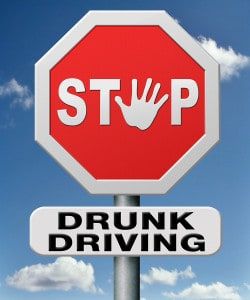 When drunk drivers are convicted of DUI, they usually face a fine, jail time, and a driver’s license suspension. But in a handful of states, convicted drunk drivers are also required to have an identification license (ID) plate. These special license plates identify drunk drivers as such through a sticker or special symbol.
When drunk drivers are convicted of DUI, they usually face a fine, jail time, and a driver’s license suspension. But in a handful of states, convicted drunk drivers are also required to have an identification license (ID) plate. These special license plates identify drunk drivers as such through a sticker or special symbol.
Identification license plates let other road users know that the driver of the vehicle has been convicted of DUI. But should drunk drivers be publicly shamed every time they hit the road or is a shame-inducing ID license plate just the kind of tough measure we need to prevent drunk driving? After all, knowing that everyone on the road would easily identify them as a drunk driver could deter drivers from driving while impaired.
To find out what road users think, CarInsurance.com recently asked 2,000 drivers across the nation if drivers convicted of drunk driving or texting while driving should be required to have an identification license plate. The result? Most respondents support ID plates. Support was also consistent among all age groups.
Despite the support for identification license plates, only Minnesota, Ohio, and Georgia require special plates for DUI offenders, according to CarInsurance.com. In the last three years, nine states have tried to implement such programs but were unsuccessful.
While identification license plates could be a potential drunk driving deterrent, other deterrents proven to successfully reduce drunk driving are already in place. Car breathalyzers, for example, don’t simply identify drunk drivers but stop drivers from operating their vehicle if they are impaired. In fact, car breathalyzers, or ignition interlocks, have reduced drunk driving fatalities by at least 30% in states that require the device for all convicted drunk drivers, according to Mothers Against Drunk Driving (MADD).
At Car Breathalyzer Help, we think it’s more important and more effective to prevent drunk drivers from operating a vehicle than just letting other drivers know that they’re sharing the road with a convicted DUI offender. As CarInsurance.com’s managing editor Des Toupes points out, how drivers could safely react to such information is not clear and providing drivers with that information only perpetuates unsafe driving because it takes focus off of the road.
